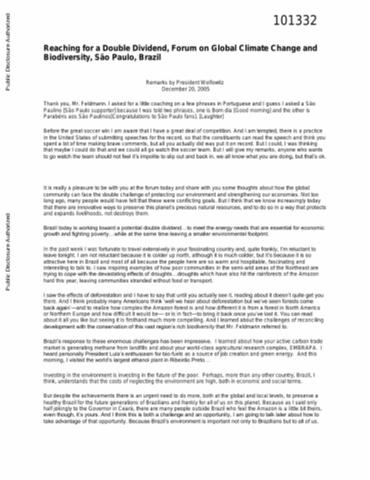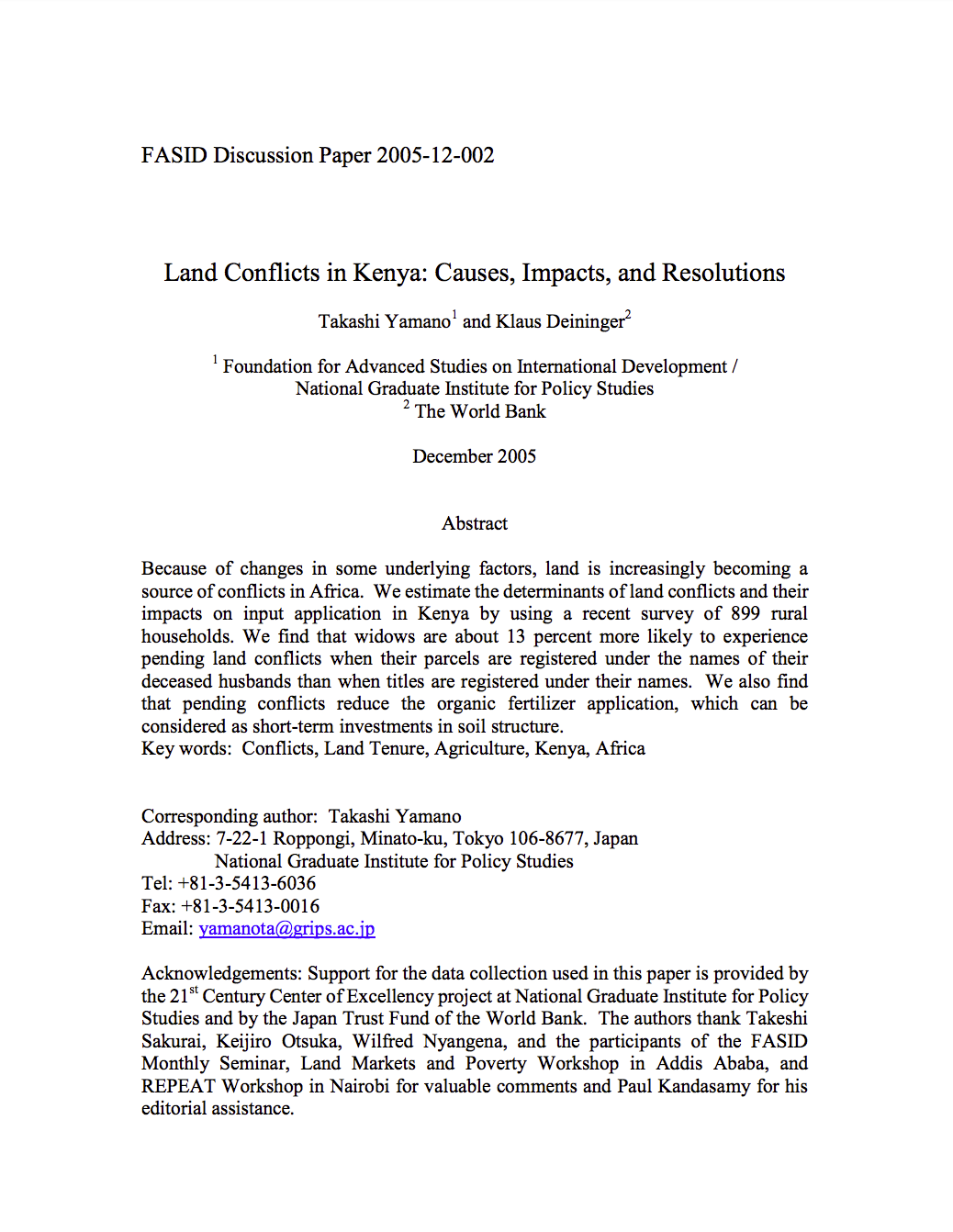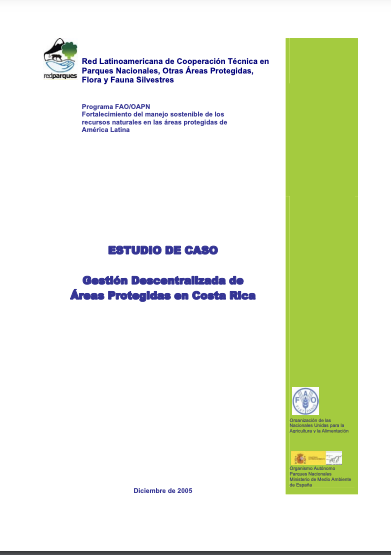Reaching for a Double Dividend
Paul Wolfowitz, President of the World Bank, shared his thoughts about how the global community can face the double challenge of protecting our environment and strengthening our economies. Brazil is working to turn this double challenge into a double dividend, by meeting energy needs that are essential for growth and fighting poverty, while leaving a smaller environmental footprint. Investing in the environment is investing in the future of the poor.




